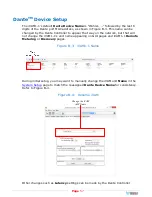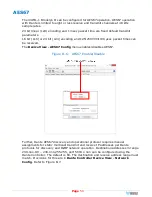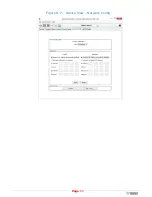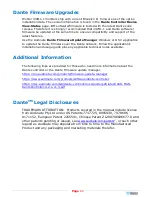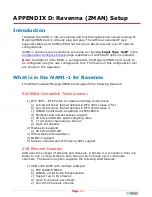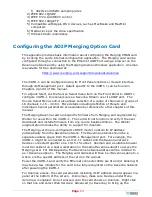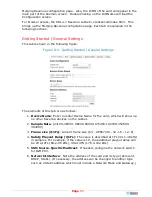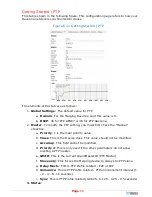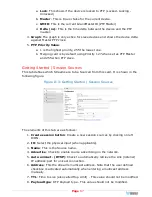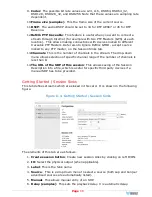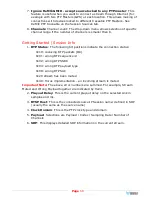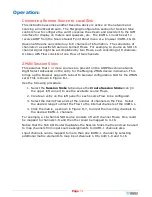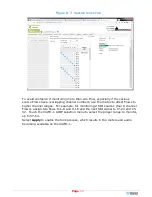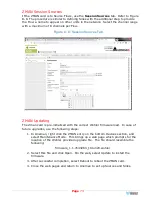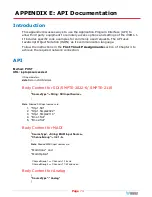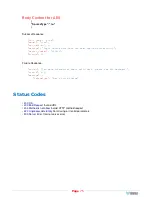
Page
71
Operation:
Connecting Remote Source to Local Sink
This instruction assumes another Ravenna device is active on the network and
sourcing a multicast stream. The Merging Configuration section for Session Sink
controls how to configure the card to receive the stream and provide it to the IAM
interface for display on meters and speakers, etc. The iVAM1-1 must be set to
receive AOIP from the Source Select Front Panel menu or a browser iVAM1-1 GUI.
Ravenna Streams can contain up to 8 channels of information. The collections of
channels in a specific Stream are termed Flows. For example, to source an SDI 16
channel signal might be accomplished by two Flows, each consisting of 8 channels.
A stereo AES Flow consists of one Flow of two channels.
ZMAN Session Sinks
This assumes that 1 or more sources are present on the AOIP Ravenna network.
Right Select Advanced on the entry for the Merging ZMAN device in Aneman. This
brings up the browser page with tab set to General configuration GUI for the ZMAN
card. This is shown in Figure D-1.
Use the following procedure:
1.
Select the
Session Sinks
tab and use the
Create Session Sinks
icon (in
the upper left corner) to see the available source Flows.
2.
Create an entry on the left panel for each source Flow to be configured.
3.
Select the desire Flow and set the number of channels in the Flow. Select
the desired range to direct the Flow to the internal channels of the iVAM1-1.
4.
Click the matrix, as shown in Figure D-7, to direct the incoming channels to
the desired iVAM1-1 channels.
For example, a 16 channel SDI source consists of two 8 channel Flows. One could
be mapped to channels 1-8 and the other could be mapped to 9-16.
Notice that the Tab I/O Router duplicates the Session Sinks matrix and can be used
to map channels from input source assignments to iVAM1-1 channels also.
Input channels can be mapped to more than one iVAM1-1 channel by selecting
additional matrix elements to map input channels 1-8 to both 1-8 and 9-16.

